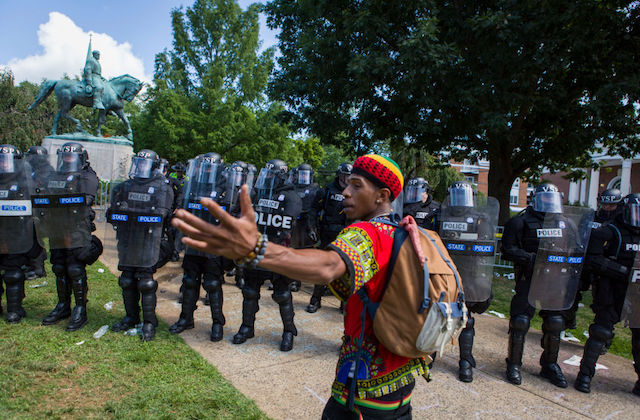The Vera Institute of Justice released a report Tuesday (August 13) that digs into the role law enforcement officers play in mass incarceration. “Gatekeepers: The Role of Police in Ending Mass Incarceration” asserts that policing practices across the country “have increased the likelihood that arrests will result in incarceration,” especially within communities of color.
As criminal justice reform continues to be a political and social priority, this study stresses the importance of reforming police work, which is the “front end of the system." The writers argue that a shift in focus is essential to decrease “the numbers of people in prison and jail,” to create “constructive pathways for people returning to their communities” and to address “the stark racial and ethnic disparities that have been a primary feature of the American criminal justice system.”
The report cites arrest data from 1997 to 2008 and concludes that “one out of three young adults—and nearly half of all Black men—had an arrest record by age 23.” Additionally, young adults today are 36 percent more likely to be arrested than their parents’ were at the same age. And maybe more importantly, “a person arrested today is far more likely to land in jail.”
That incarceration frequently leads to even more dire consequences. According to the report:
rnt
Just a few days in jail increase a person’s likelihood of being found guilty, receiving a harsher sentence and committing a future crime. As a result of a bewildering number of legal and regulatory penalties, disabilities or disqualifications that flow from involvement with the criminal justice system, people with arrest records—even if the charges against them are later dropped—have a harder time maintaining or finding employment, credit or housing.
Communities of color are deeply impacted by “policing’s over-reliance on punitive enforcement,” the report finds. They have “endured practices such as stop, question, and frisk; excessive enforcement of minor offenses; and concentrated policing in targeted areas far disproportionate to their percentage of the population and likelihood of violating the law. All of this has resulted in increasingly fractured community-police relationships.”
There is also an emotional impact that comes from interactions with the police, including anxiety and other symptoms of trauma. “The more intrusive the stops, the more pronounced the negative effects—an especially concerning finding given that a history of trauma is itself strongly correlated with subsequent justice system involvement and incarceration,” the report says.
The Vera Institute offers the following recommendations to spark a change in policing practices:
- rnt
- Identify alternatives to enforcement that don’t involve the criminal justice system.
rntt - Increase the number and types of offenses that don’t require punitive enforcement.
rntt - Expand the reach of alternatives to arrest.
rntt - Create structural incentives for police to use alternatives.
rntt - Find out what works best through experimentation, research and analysis.
rnt
rnt
rnt
rnt
rn
Read the full report here.
